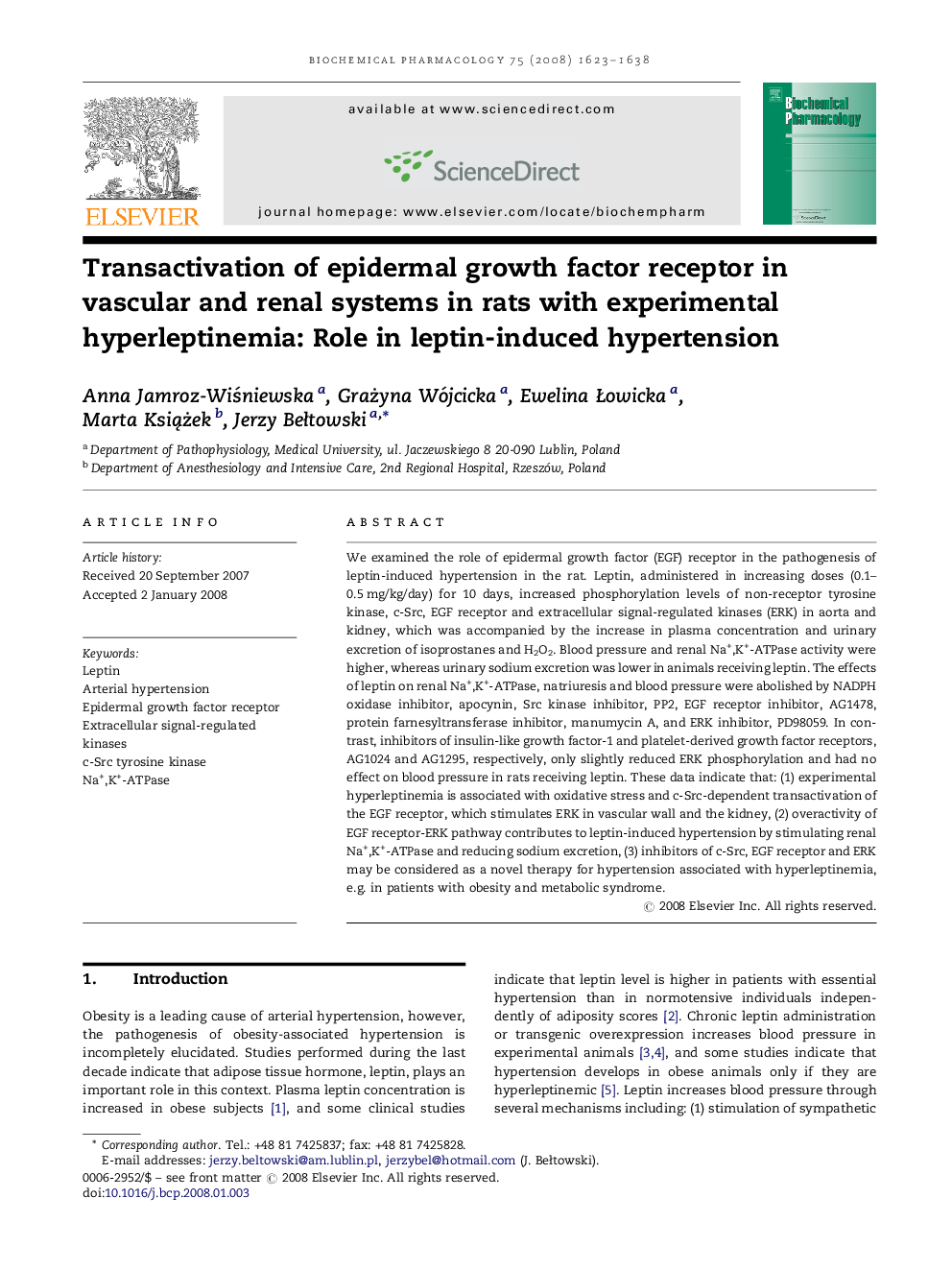| Article ID | Journal | Published Year | Pages | File Type |
|---|---|---|---|---|
| 2514417 | Biochemical Pharmacology | 2008 | 16 Pages |
We examined the role of epidermal growth factor (EGF) receptor in the pathogenesis of leptin-induced hypertension in the rat. Leptin, administered in increasing doses (0.1–0.5 mg/kg/day) for 10 days, increased phosphorylation levels of non-receptor tyrosine kinase, c-Src, EGF receptor and extracellular signal-regulated kinases (ERK) in aorta and kidney, which was accompanied by the increase in plasma concentration and urinary excretion of isoprostanes and H2O2. Blood pressure and renal Na+,K+-ATPase activity were higher, whereas urinary sodium excretion was lower in animals receiving leptin. The effects of leptin on renal Na+,K+-ATPase, natriuresis and blood pressure were abolished by NADPH oxidase inhibitor, apocynin, Src kinase inhibitor, PP2, EGF receptor inhibitor, AG1478, protein farnesyltransferase inhibitor, manumycin A, and ERK inhibitor, PD98059. In contrast, inhibitors of insulin-like growth factor-1 and platelet-derived growth factor receptors, AG1024 and AG1295, respectively, only slightly reduced ERK phosphorylation and had no effect on blood pressure in rats receiving leptin. These data indicate that: (1) experimental hyperleptinemia is associated with oxidative stress and c-Src-dependent transactivation of the EGF receptor, which stimulates ERK in vascular wall and the kidney, (2) overactivity of EGF receptor-ERK pathway contributes to leptin-induced hypertension by stimulating renal Na+,K+-ATPase and reducing sodium excretion, (3) inhibitors of c-Src, EGF receptor and ERK may be considered as a novel therapy for hypertension associated with hyperleptinemia, e.g. in patients with obesity and metabolic syndrome.
